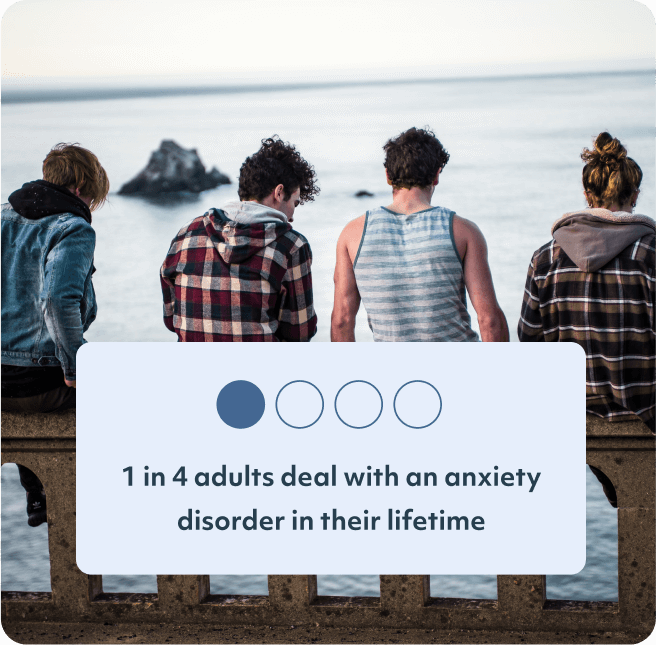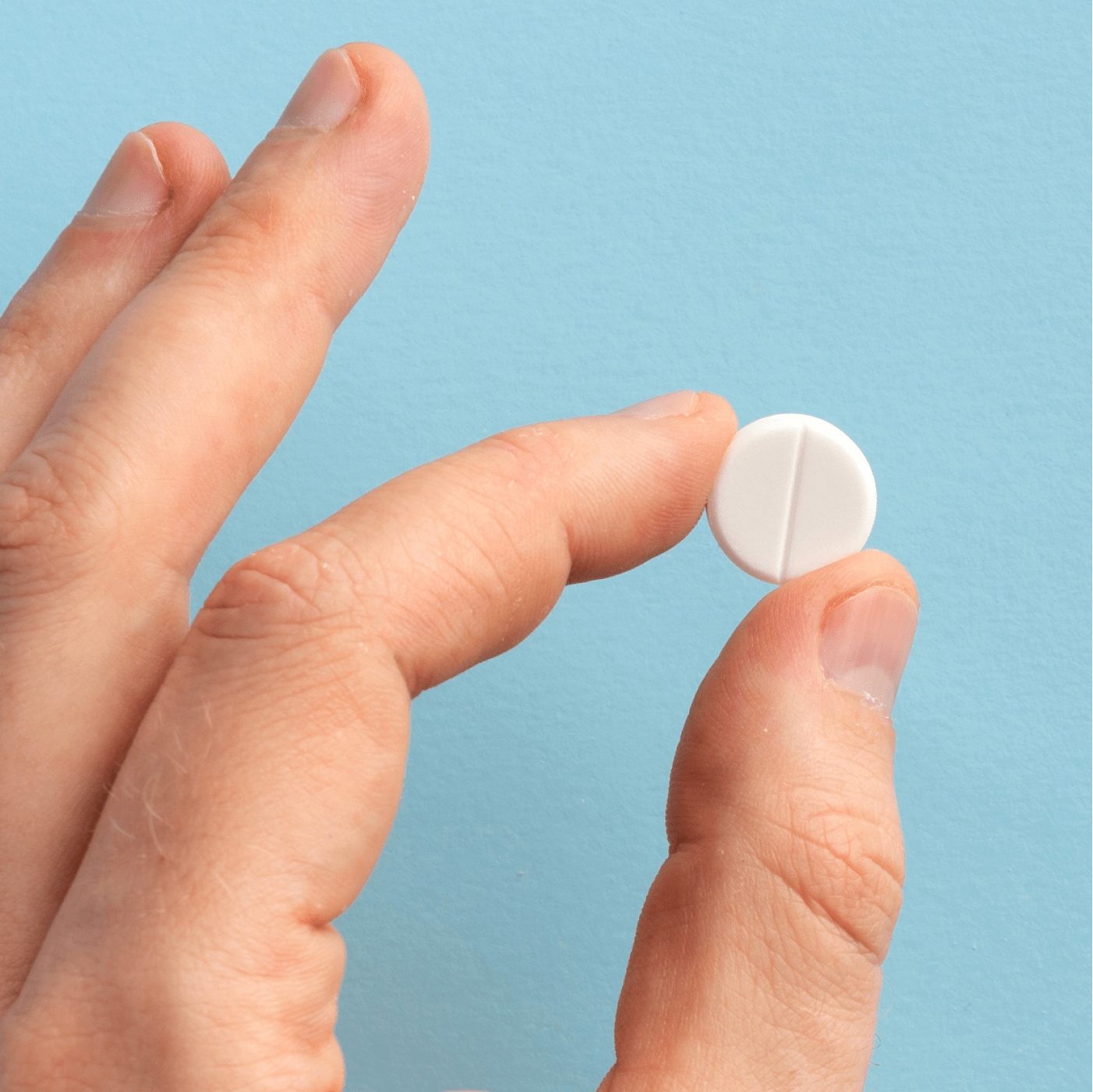Anxiety and Addiction
Addiction may occur when trying to manage anxiety. Treat your dual diagnosis of an anxiety disorder and substance use disorder from home with telemedicine care.
Reviewed: October 6, 2022
If you have anxiety, you're not alone
Anxiety disorders are the most common mental health disorders in the United States, affecting about 18% of the population. Even though one in four adults will deal with an anxiety disorder in their lifetime, less than a third of people who struggle with anxiety receive treatment.
Those with anxiety disorders are also more likely to struggle with substance abuse than those not affected. Coping with drug and alcohol addiction adds an extra challenge to managing an anxiety disorder, but the right treatment will address both to improve overall mental health.

Anxiety looks different in everyone
Long-term feelings of fear and anxiety can cause major life issues, including affecting relationships, school, and work.
Signs and symptoms of anxiety can vary, but the National Institute of Mental Health tells us that common symptoms may include:
- Feeling wound up or restless
- Feeling tired and irritable
- Muscle tension
- Inability to control feelings of worry
- Sleep problems
- Panic attacks

FAQs: Treating Anxiety and Addiction
Everyone worries sometimes, but that is different from a clinical anxiety diagnosis.
Most often when people refer to anxiety, they mean generalized anxiety disorder. Those dealing with generalized anxiety disorder tend to feel worried, anxious, or nervous even when there is little or no reason to worry. Their anxiety is difficult to control and affects their daily lives. Generalized anxiety disorder affects 6.8 million adults of the US population.
There are other anxiety disorders, including panic disorder, social anxiety, stress, phobias, PTSD, and certain depressive disorders.
Alcohol makes anxiety worse. As a depressant, alcohol may initially seem to make a person feel calm and relaxed. But it changes brain chemistry, which can worsen anxiety.
If you experience a great deal of anxiety the day after a heavy drinking episode, this is why. In fact, the Anxiety and Depression Association of America, indicates that around 7 percent of Americans struggle with alcohol-induced anxiety.
Increased anxiety is also a symptom of alcohol withdrawal for those who have alcohol use disorder. Symptoms of alcohol withdrawal also include: sweating, vomiting, nausea, hallucinations, increased heart rate, and even seizures.
Mixing alcohol and anxiety meds can make you feel more anxious, or can even put your health at risk. With some medications, your doctor may okay moderate drinking. If you don’t know whether you’ll be able to abide by your doctor’s suggested limits, it’s safest not to drink at all.
If you have a dual diagnosis of alcohol use disorder and an anxiety disorder, make sure your doctor knows about both. It may affect which medication or therapy is most effective for your treatment.
In many cases, yes. Many anxiety medications are well tolerated and effective for those taking Suboxone (buprenorphine/naloxone). Your doctor needs to be aware of all medications you’re taking in order to make the best recommendations for your care, but you shouldn’t fear that you’ll be forced to choose between treating your opioid use disorder and your co-occurring mental illness.
Some doctors prescribe benzodiazepines for anxiety. Because they have a high risk of physical dependence and of dangerous interaction with Suboxone, Workit clinicians do not prescribe benzos for anxiety.
Safe anxiety treatment
Our providers are trained in harm reduction and in the unique needs and concerns of people with substance use disorders and co-occurring mental health issues. They will discuss your situation and medical history with you and prescribe safe medications that fit you best.
Medications that are often prescribed may include:
- SSRIs
- SNRIs
- Mirtazapine
- Buspirone
- Hydroxyzine
- Clonidine
- Propranolol

Quit Opioids
Feel like yourself again with medication and recovery support.
Stop Drinking
Modern, personalized alcohol treatment from the privacy of home.
Treat co-occurring anxiety and addiction
Our pages are medically reviewed and fact-checked by accredited medical professionals to ensure that all statements about medical conditions, symptoms, treatments, procedures and tests, standards of care, and typical protocols are accurate and reflect current guidelines as well as the latest research. However, please remember that the information on this page is for informational purposes only and is not intended to replace or substitute for any medical or other advice. Workit Health, Inc. and its affiliated professional entities make no representations or warranties and expressly disclaim any and all liability concerning any treatment, action by, or effect on any person following the general information offered or provided on this page. If you have specific concerns or a situation arises in which you require medical advice, you should consult with an appropriately trained and qualified medical services provider.





